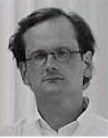
Lessig
Open Access Proponents Condemn Media Mergers
(February 26, 2000) A group of liberal activists held a panel discussion at the National Press Club in Washington DC on Wednesday, February 23, to complain about the consequences of the mergers of AOL and Time Warner, and AT&T and MediaOne, and to demand "open access" to the Internet.
The panel was made up of:
The panelists had varying views as to the nature of the problem. Gene Kimmelman emphasized that these mergers present an antitrust problem. The ACLU representative argued that there is a free speech problem. Andrew Schwartzman argued that this is a problem for the FCC. Lessig argued that this is an Internet architecture issue. However, all agreed that some government entity must impose an obligation of open access upon broadband Internet access providers.
Mark Cooper of the Consumer Federation of America led off. He stated that "We cannot allow issues such as the freedom of speech, the free flow of ideas, and the flow of commerce in our society to be decided by the whims of corporate interests which change with every merger. We must have a binding public policy obligation that provides open access to the thousands of little ISPs who seek to reach the public in an open and unhindered way."
Cooper stated also that he is concerned because the cable industry is "highly concentrated" with two firms, "AT&T and AOL, that will dominate the broadband landscape."
"The cable industry has never behaved in a competitive manner," he continued. "These two companies are simply not going to compete with each other."
He cited as an example that the "major cable companies have never overbuilt one another."
Cooper also stated that he was concerned that "AT&T owns a sizable chunk of Time Warner Entertainment."
Gene Kimmelman followed up on this point. "AT&T may be as much as 12% owner, based on our calculations, of AOL. How is that the case? If you look at the corporate structure of the AT&T MediaOne transaction, you see that MediaOne is 25% owner of a major subsidiary of Time Warner, Time Warner Entertainment. What's that? It is all of Time Warner's cable systems, ownership of HBO, and Warner studios. When you translate the stock transfer through this merger, AT&T becomes a major shareholder in AOL Time Warner."
"It is clearly a significant antitrust issue, that the FTC has to sort out in the AOL Time Warner merger, and the Justice Department has be looking at now as it reviews AT&T and MediaOne, and the FCC has to look the context of both of these transactions." Kimmelman continued that "The fundamental problem here for antitrust is one of monopsony power, in addition to a number of vertical problems."
He also criticized the Clinton administration for inaction on this issue. He said that this sends the wrong message to the market.
Kimmelman concluded: "This is exactly what AOL has done. AOL went to the policy makers, sought a fair market place. But they said all along, 'if we can't get the opportunity to play fairly on a cable wire, we will buy it.' And that is exactly what they have done. And that is exactly what we need our government to undo, and reverse course, and make sure that we can go back to a world where the opportunities of the Internet are not cut off by a few of those entrepreneurial consolidations."
Andrew Schwartzman called for the Federal Communications Commission to impose open access requirements.
"We will make it very plain to the Federal Communications Commission that the mergers of AT&T and MediaOne and of AOL and TimeWarner," said Schwartzman, "have to be considered in conjunction with each other. One cannot be considered without the other."
"Let's create an open system that does not have opportunities to slow content through caching. You can identify where the content is coming from -- and if it is from your vendor -- go ahead -- if it is somebody else's -- slow down the local business -- the local startup," said Schwartzman.
| See, Transcript of Lessig's Address. |
Lawrence Lessig, from the Berkman Center at Harvard Law School, also spoke. He advocated an "end to end platform." He elaborated:
"End to end means that the network is not in, does not have the ability, to discriminate. If you play by the rules, if you put something out there is TCP/IP format, ... putting on the Internet in the form that it demands, the network is not able to discriminate between one kind of content and another, or one kind of application and another."
He continued that this principle is an "invitation to innovators. It says to innovators, that if you come up with a new idea, a new way to use this Internet, a new way to take advantage of this communication architecture, architecture cannot act strategically against you."
 |
|
| Lawrence Lessig |
Lessig stated that this principle of end to end is being violated by mergers involving broadband access providers. He stated that "the issue that we are talking about now is whether the government should stand back as that architecture is changed, because it is being changed. The original architectural principles of end to end are being compromised by these emerging structures that integrate, in particular, broadband."
He stated that the FCC ought to adopt a policy, and that it should involve "end to end". However, he did not offer any other details.
He also argued that this issue "is something different from the traditional left and right arguments." He was joined by, and agreed with, representatives from the ACLU and other liberal organizations.
"From the right that is a great idea, because it will spur more innovation. From the left, that is a great idea, because it will preserve the diversity, and speech," said Lessig.